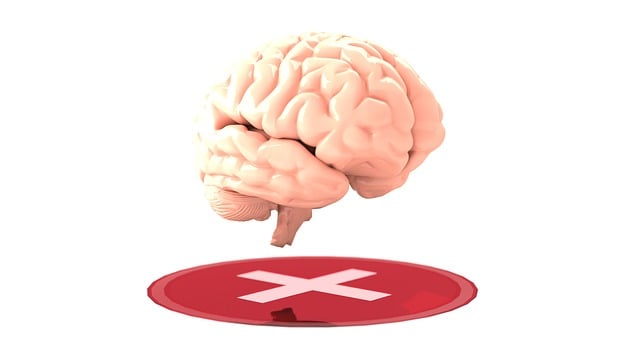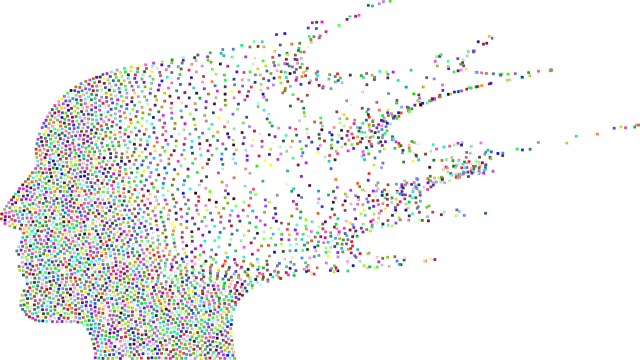Greenwood Village distinguishes itself through its holistic Greenwood Village Spiritual-Religious Issues Therapy approach, integrating spiritual practices into mental health care. This involves analyzing diverse data from clinical records to online forums to understand religious influences on well-being and self-care routines. Using techniques like Self-Awareness Exercises, therapists uncover specific trends, enabling tailored interventions and support systems. The village's comprehensive methods, including structured interviews and self-report questionnaires, facilitate effective treatment plans. Data analysis empowers professionals to personalize therapy, address demographics' unique spiritual challenges, and develop inclusive care strategies. As technology advances, ethical considerations around data privacy remain paramount while machine learning and diverse data integration aim to enhance predictive models for mental health outcomes.
Mental health data analysis has emerged as a powerful tool in understanding and addressing complex psychological issues. This comprehensive guide explores various facets of this evolving field, from deciphering diverse data types to implementing effective therapeutic strategies. We delve into best practices, including the unique contributions of Greenwood Village’s Spiritual-Religious Issues Therapy, which integrates cultural and spiritual aspects for holistic healing. Furthermore, we discuss ethical considerations and future trends in mental health analytics, highlighting the potential for advanced data interpretation to personalize care and improve outcomes.
- Understanding Mental Health Data: A Comprehensive Overview
- The Role of Greenwood Village in Spiritual-Religious Issues Therapy
- Data Collection Methods for Effective Analysis
- Interpreting Results: Unlocking Insights and Personalized Care
- Ethical Considerations and Future Directions in Mental Health Analytics
Understanding Mental Health Data: A Comprehensive Overview

Understanding mental health data is a multifaceted endeavor, crucial to navigating complex emotional landscapes and identifying trends within communities. This comprehensive overview involves delving into various sources, from clinical records to online forums, to gather insights into individuals’ spiritual-religious issues, therapy preferences, and self-care routines. By analyzing these data points in Greenwood Village or any other setting, mental health professionals can discern patterns that influence emotional well-being.
For instance, through systematic Self-Awareness Exercises and Emotional Well-being Promotion Techniques, researchers can uncover the impact of religious practices on mental health outcomes. Moreover, examining trends in Self-Care Routine Development for Better Mental Health can offer valuable strategies to enhance community resilience and overall wellness. This holistic approach, grounded in data analysis, enables informed interventions and tailored support systems, ultimately fostering healthier individuals and communities.
The Role of Greenwood Village in Spiritual-Religious Issues Therapy

Greenwood Village stands as a beacon in the realm of Spiritual-Religious Issues Therapy, offering specialized services that cater to the intricate needs of individuals grappling with faith-related challenges and emotional distress. Through its comprehensive approach, the village provides a sanctuary where one can explore and heal, integrating spiritual practices into therapeutic processes. This unique setting fosters a sense of belonging and empowerment, enabling clients to navigate their journeys towards emotional well-being promotion techniques that resonate with their personal beliefs.
In addressing these complex issues, Greenwood Village imparts valuable tools for self-esteem improvement, equipping individuals with resilience against life’s uncertainties. Moreover, the village prioritizes risk management planning for mental health professionals, ensuring a safe and supportive environment where practitioners can explore innovative ways to integrate spiritual care into conventional therapy without compromising integrity or ethics. This holistic approach reflects the village’s commitment to revolutionizing mental health support, making it accessible and meaningful to all who seek it.
Data Collection Methods for Effective Analysis

Effective mental health data analysis relies heavily on robust collection methods that accurately reflect an individual’s experiences and behaviors. In Greenwood Village, where spiritual-religious issues therapy is readily available, professionals employ diverse techniques to gather comprehensive data. One such method is structured interviews, designed to probe specific symptoms and concerns, offering detailed insights into a client’s mental state. Additionally, self-report questionnaires are widely used; these allow individuals to provide anonymous feedback on their emotional well-being, stress management strategies, and social skills, facilitating a more open exploration of personal challenges.
Integrating qualitative and quantitative data through methods like focus groups and observations adds depth to the analysis. For instance, observing therapeutic sessions can reveal communication strategies that are not readily disclosed. By combining these approaches, mental health practitioners in Greenwood Village ensure they gain a holistic understanding of clients’ needs, enabling more tailored interventions, whether it’s addressing stress management or implementing social skills training as part of comprehensive care plans.
Interpreting Results: Unlocking Insights and Personalized Care

Interpreting data from mental health assessments is a complex yet rewarding process that allows professionals to unlock valuable insights and tailor treatment plans for each individual. By analyzing trends and patterns within the collected data, therapists in Greenwood Village can identify prevalent spiritual-religious issues among their clients, which often play a significant role in one’s mental well-being. This qualitative analysis provides a deeper understanding of the interconnectedness between personal beliefs, cultural backgrounds, and unique challenges faced by individuals seeking therapy.
For instance, recognizing a high occurrence of anxiety disorders within a specific demographic could prompt the development of specialized Self-Care Practices and Stress Management Workshops tailored to that community’s needs. Moreover, identifying gaps in access to mental health services through Community Outreach Program Implementation can ensure that support reaches underserved populations. This data-driven approach not only enhances the effectiveness of therapy but also fosters a more inclusive and responsive therapeutic environment in Greenwood Village and beyond.
Ethical Considerations and Future Directions in Mental Health Analytics

As mental health data analysis advances, ethical considerations become increasingly vital. Privacy and consent are paramount; protecting sensitive individual information is non-negotiable, especially when integrating digital tools like wearable devices and online platforms into therapy practices, as seen in Greenwood Village’s embrace of spiritual-religious issues therapy. Striking a balance between gathering valuable insights for improved care and maintaining patient confidentiality requires robust data governance frameworks.
Looking ahead, the future of mental health analytics holds promising possibilities. Leveraging machine learning algorithms could lead to more accurate predictive models, enabling early interventions. Additionally, integrating diverse data sources—from electronic health records to social media trends—could provide a holistic understanding of mental wellness. This evolution necessitates ongoing dialogue between researchers, healthcare providers, and policymakers to ensure equitable access to effective Mental Health Education Programs Design, with a focus on Culturally Competent care that respects every patient’s unique background, as evidenced by the growing emphasis on Mental Wellness Journaling Exercise Guidance.
Mental health data analysis has evolved into a powerful tool for understanding complex human experiences, especially when combined with specialized therapies like those offered at Greenwood Village Spiritual-Religious Issues Therapy. By employing robust data collection methods and ethical interpretations, professionals can unlock valuable insights that personalize care. As the field of mental health analytics continues to advance, further exploration in this domain promises to revolutionize how we approach treatment, ensuring a more nuanced and effective support system for all.












